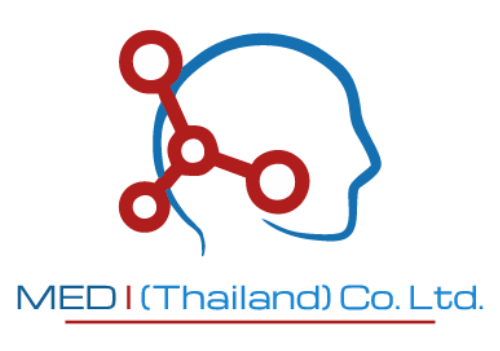Radiopharmaceuticals are playing a growing role in modern medicine, especially in diagnosing and treating complex diseases like cancer, heart conditions, and neurological disorders. But one question continues to pop up:
How safe are radiopharmaceuticals for patients?
This is a valid concern, especially since the word “radioactive” can sound intimidating. Today, we’ll break down the safety of radiopharmaceuticals in simple, easy-to-understand terms. You’ll learn what they are, how they work, and—most importantly—what makes them safe for medical use.
What Are Radiopharmaceuticals?
Radiopharmaceuticals are drugs that contain a small amount of radioactive material. They are commonly used in nuclear medicine for both diagnosis and treatment.
Diagnostic Uses
In diagnostic imaging (like PET scans or SPECT scans), radiopharmaceuticals help doctors see what’s happening inside the body without surgery.
- They target specific organs or tissues
- Emit low-level radiation detected by imaging machines
- Help diagnose diseases like cancer, thyroid issues, and heart problems
Therapeutic Uses
Some radiopharmaceuticals are used to treat diseases:
- They deliver radiation directly to affected cells
- Often used in cancer therapy to destroy tumors
- Reduce damage to surrounding healthy tissues
How Safe Are Radiopharmaceuticals for Patients?
Let’s address the key question: How safe are radiopharmaceuticals for patients?
The short answer: very safe when administered properly by trained professionals.
But let’s dig a little deeper.
1. Low Radiation Exposure
Most radiopharmaceuticals emit very small amounts of radiation—just enough to perform their function. The exposure is comparable to:
- A standard chest X-ray
- A cross-country flight in terms of cosmic radiation
- Natural background radiation we experience daily
Key Point: The body often eliminates the radioactive material within hours or days.
2. Strict Safety Standards
The safety of radiopharmaceuticals is monitored by several national and international agencies, including:
- FDA (Food and Drug Administration)
- IAEA (International Atomic Energy Agency)
- NRC (Nuclear Regulatory Commission)
- Health ministries in each country (e.g., Thailand’s Ministry of Public Health)
These organizations enforce strict rules around:
- Manufacturing
- Storage
- Handling
- Transportation
- Patient dosing
3. Highly Targeted Treatments
One reason why radiopharmaceuticals are safe is that they’re designed to be highly targeted.
- They go directly to specific cells or tissues (like tumors)
- This limits exposure to the rest of the body
- Reduces side effects compared to traditional treatments
This level of precision is one of the biggest safety advantages.
Are There Any Side Effects?
Like any medical treatment, radiopharmaceuticals may cause mild side effects, but serious reactions are rare.
Common, Temporary Side Effects
- Fatigue
- Nausea
- Redness or discomfort at injection site
- Temporary changes in taste
Rare but Possible Reactions
- Allergic reactions (extremely rare)
- Temporary changes in organ function
- Radiation sensitivity in specific individuals
Important: These side effects are usually mild and go away quickly. Doctors evaluate patients beforehand to minimize any risk.
Who Should Avoid Radiopharmaceuticals?
Though radiopharmaceuticals are safe for most people, some individuals may need to take precautions.
Special Considerations
- Pregnant women: Radiation could affect the fetus
- Breastfeeding mothers: May need to pause breastfeeding temporarily
- People with severe kidney or liver issues: Because these organs help eliminate the substance
Doctors will always assess individual medical history before proceeding.
How Hospitals and Clinics Ensure Safety
If you’re wondering how safe are radiopharmaceuticals for patients, it’s reassuring to know that safety protocols are in place at every step.
In-Hospital Safety Practices
- Only licensed nuclear medicine professionals can administer them
- Dosages are carefully calculated based on the patient’s body and purpose
- Rooms and equipment are shielded and monitored for radiation levels
- Patients are informed of post-treatment safety tips
Aftercare Guidelines
Patients may receive simple instructions like:
- Drinking lots of water to flush out the substance
- Limiting close contact with pregnant women or small children for 24-48 hours
- Following up with the doctor for review
Benefits Far Outweigh the Risks
Radiopharmaceuticals offer a non-invasive, accurate, and effective way to diagnose and treat serious conditions. Their benefits include:
- Earlier disease detection
- Minimally invasive procedures
- Faster and more targeted treatment
- Reduced need for exploratory surgery
When weighed against the minimal risks and temporary side effects, the benefits clearly outweigh the concerns.
Conclusion: So, How Safe Are Radiopharmaceuticals for Patients?
To recap: radiopharmaceuticals are extremely safe when used as directed by qualified healthcare professionals. They deliver powerful diagnostic and treatment results with minimal risk, and millions of people around the world benefit from them every year.
So, if your doctor recommends a radiopharmaceutical procedure, rest assured—it’s a proven and safe medical tool backed by decades of research and global regulation.
Ready to Learn More or Need Expert Help?
At MEDI Thailand, we specialize in radiopharmaceutical facility planning, supply, and service. Whether you’re a healthcare provider, investor, or partner looking to explore this field in Thailand, we’re here to help.👉 Contact us today to find out how we can support your project with safety-first solutions in radiopharmaceuticals.
